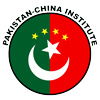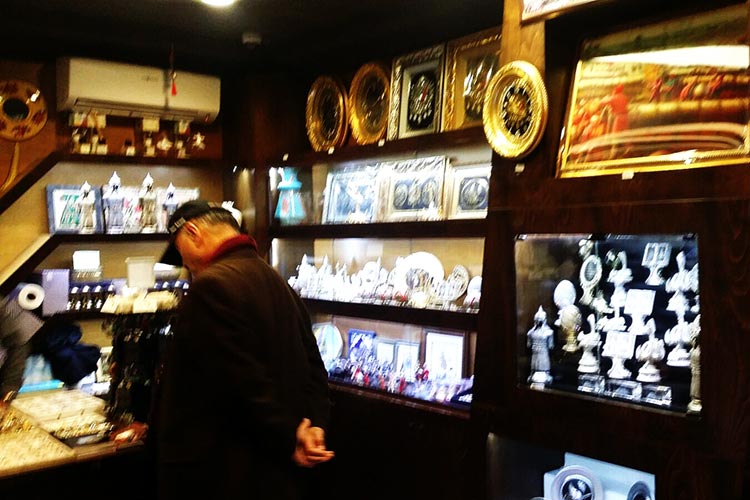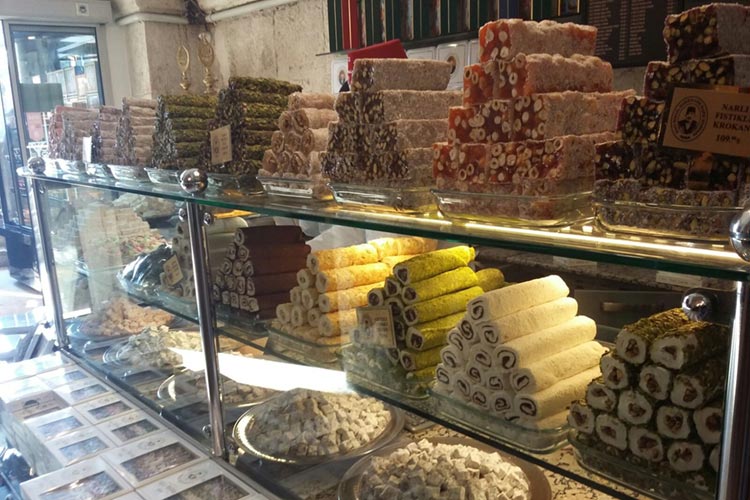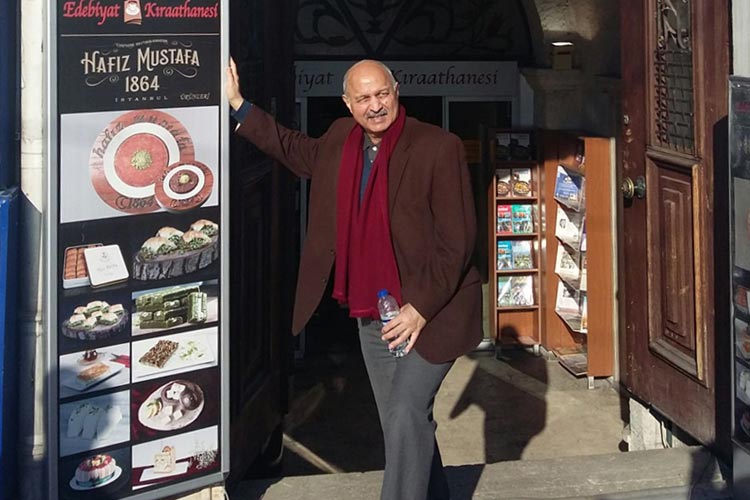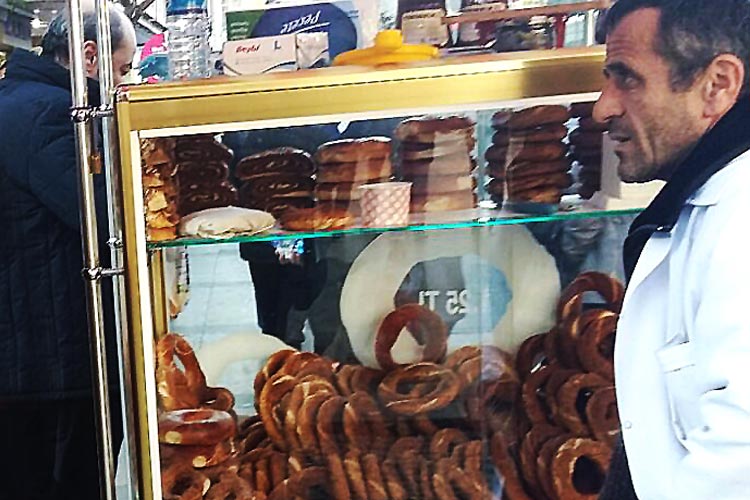Istanbul's food streets resonate with history, culture and cuisine
Source : PCI Date : 27-09-2017
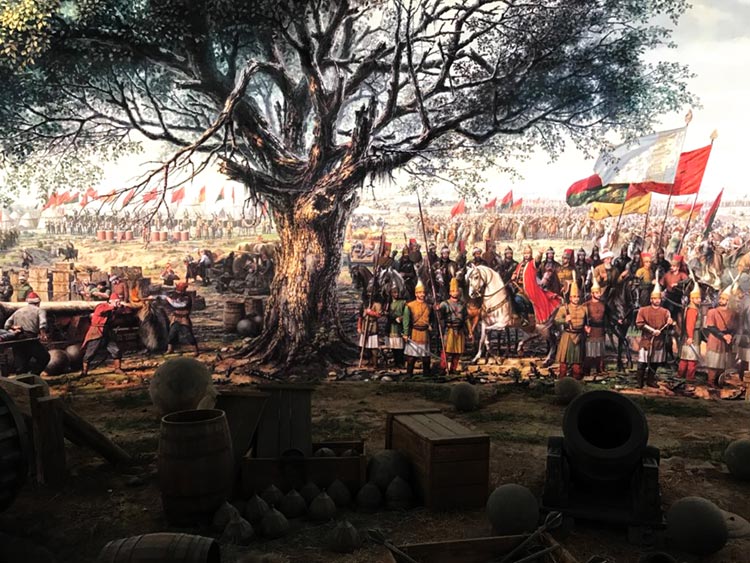 |
|
|
Napoleon very rightly had once said: "If the world could be one country, then Istanbul would be its capital". Istanbul merits this unique position because of its location at the crossroads of continents, countries and civilizations, probably the only metropolis which can access 65 different cities of the world within two and a half hours flying time.
Once the capital of the Byzantine empire and the centre of Christianity, Istanbul today is a robust democracy, the biggest city of Turkey, the only Muslim member of NATO.
It was on May 28, 1453 that Sultan Fateh Mehmet, then just 21 years old, conquered Constantinople after a big battle, and renamed it Istanbul. The first act after this victory was to offer his morning prayers in the Hagia Sophia Cathedral on May 29. This historic structure is located next to the Topkapi and Blue Mosque, a fifteen minute walk from the Sultan Ahmed area of Istanbul to its famous, historic Grand Bazar, the world's biggest covered market.
This walk is rather unique and fascinating because trams, buses, cars, pedestrians and underground trains coexist harmoniously to provide convenience to the commuters of Istanbul, in what is clearly a smooth coexistence of public and private transport. In 2002, when President Erdogan was elected to office, the trams and the underground rail served Istanbul through 46 km of railway lines. By next year, this will have expanded to 776 km, reinforced by the completion of the world's biggest airport in Istanbul in 2018, with the capacity to serve 150 million passengers annually.
Istanbul also has a special place for Pakistanis, because the first big mass movement which mobilized the Muslim of India in the 20th Century in 1920, the Khilafat Movement, was launched to express solidarity with Turkey. The Istanbul University, has had a department of Urdu since 1915, and celebrated its centenary with a lot of fanfare two years ago. About a 1000 Pakistani students live and study in Istanbul.
A unique element of walking in the streets in Istanbul in the Sultan Ahmad area, is the variety and diversity of coffee, cuisine, spices, with some of the finest delicacies made to order. For example, the Spice Market of Istanbul offers different kinds of flavours of spices and coffee, including one shop called 'Noori Spice Shop'. It is owned by a gentleman who prefers to call himself Al Pacino, and prepares a concoction called 'Ottoman Coffee', which has flavors of cardamom,cinnamon and other special selected herbs. It is probably the most expensive, but also the most tasty coffee found in Istanbul.
Another shop in Grand Bazar, which has 26 different gates and winding narrow lanes, selling all kind of goods, provide some of the finest nuts, saffron, multiple varieties of olives and olive oil, including crunchy cardamom from Madagascar! One such shop, called 'Ramazan Canbaz' had a shopkeeper, Abdel Wahab, who spoke a smattering of Urdu because he said there are lot of customers from Pakistan, offering them complimentary hot pomegranate tea.
One of the finest coffee shops in Sultan Ahmed is 'Hafez Mustafa'. Built in 1864, it was converted from a library into a coffee shop that also sells top quality Turkish sweet delicacies like Baklava. (the best Baklava is usually made of honey). And Sultan Ahmad also hosts some very nice kabab joints. Sultanahmat Koftecesi is one such famous shop which was built in 1920, and is quite popular for its grilled kabab and kofta (meatballs) with fresh salads, topped by "Ayran", a delicious creamy yoghurt drink which is the Turkish version of lassi.
Turkish delicacies that are available in Istanbul are also delectable. For example, the 'Simit' is a cross between a Turkish Bagel and Pretzel, sesame-encrusted bread which is often an inexpensive and filling breakfast on the move, with a filler of cheese, that is accompanied by piping hot Turkish coffee. Then, for the winter, there is nothing better than 'Salep' which is slowly cooked, creamy milk with cardamom, cinnamon, and rosewater, with a topping of sliced pistachio. And the presentation of Turkish ice cream is like a well-developed ritual, done with almost acrobatic precision to fascinate and amuse tourists.
Turkey, under President Erdogan, who acquired his reputation of an able administrator as Mayor of Istanbul, has been transformed into a modern, developed, and self-confident country that takes pride in its well-preserved past, and has faith in the future. Turkey has also managed to rediscover its roots, while making a clear distinction between modernisation (which is warmly embraced) and Westernisation (of which they are wary, partly because of growing Islamophobia in Europe). Today's Istanbul presents the finest example of this blend of tradition with modernity, and dynamism befitting its key role as the world's premier 21st Century global city.
